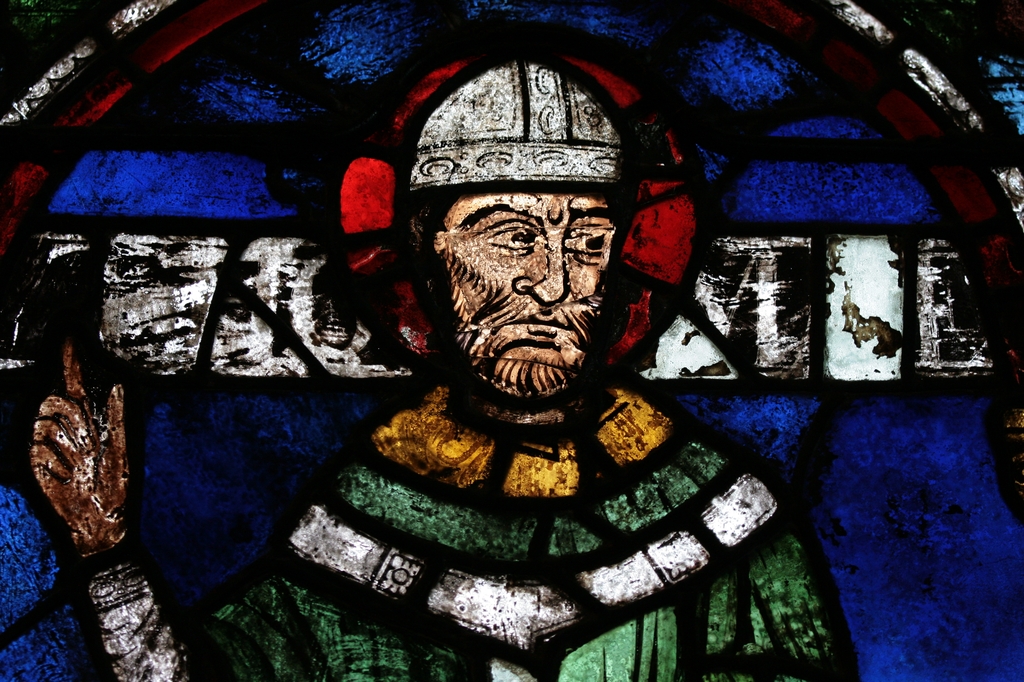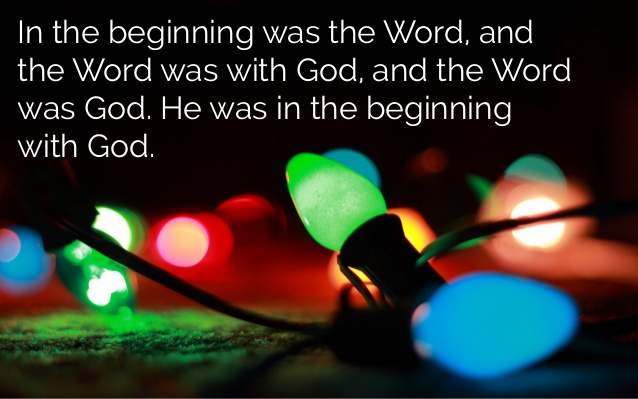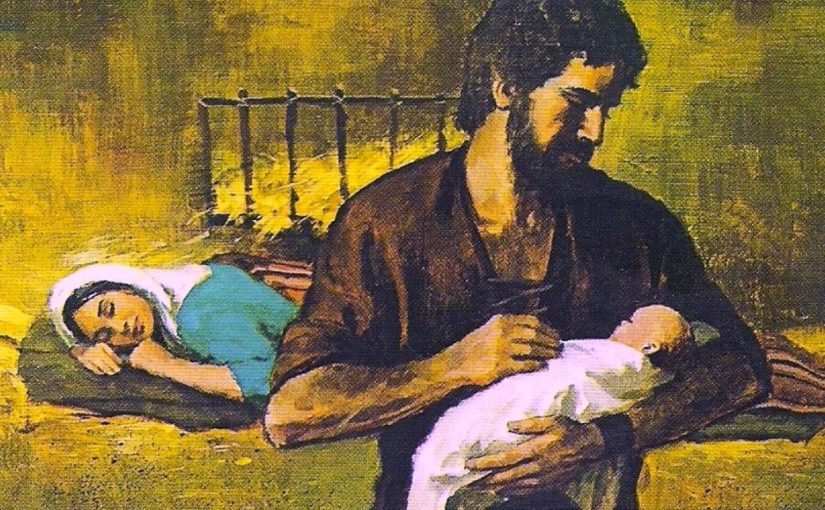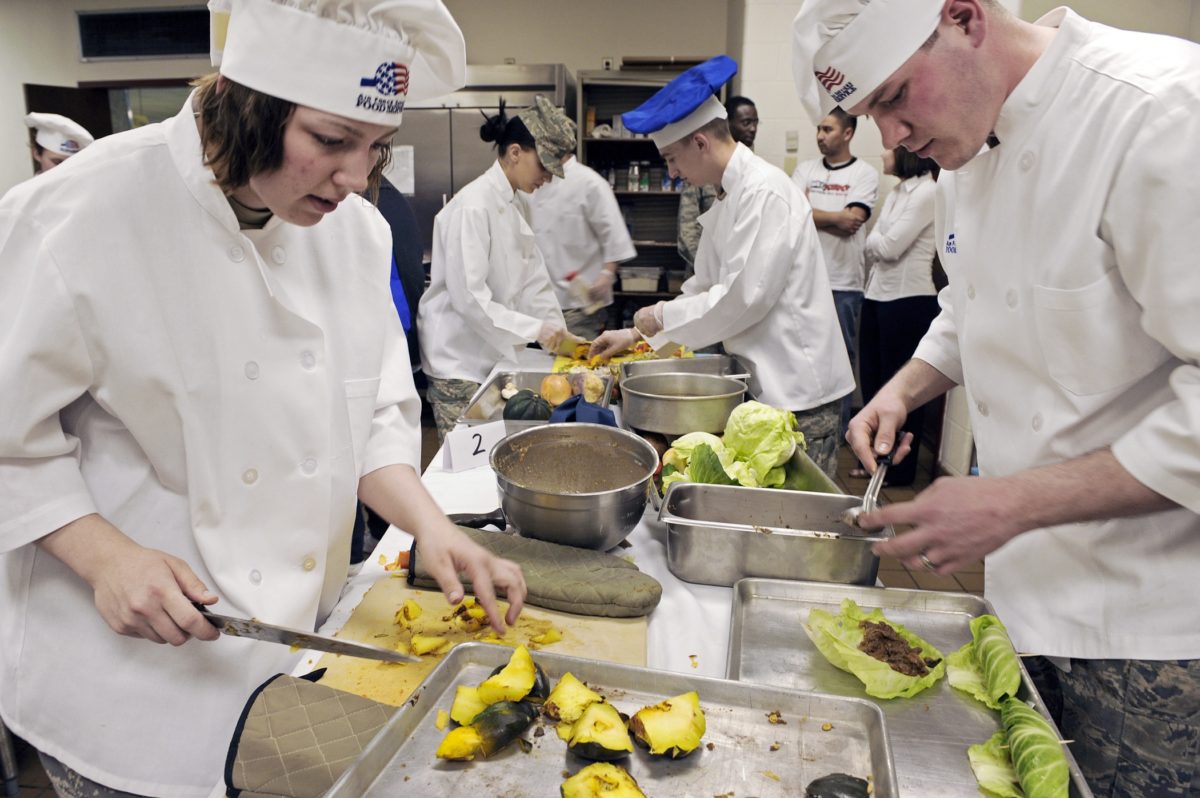Today’s readings
Once, a very long time ago, there was a man named Joseph. He was a well-respected and hard-working man, from the family of the great king David. But Joseph himself was not a great king. No, he was a humble man, a carpenter, who worked hard and loved God.
Joseph was to be married to a young woman named Mary – their marriage was probably arranged by their families. They would come together to be man and wife when the time was right. One day, she came to him with an unbelievable story about being pregnant, with a child given to her by the Holy Spirit. Joseph didn’t know what to think. He clearly knew he was not the father of the baby, and so he decided not to marry the young woman, but instead to let her go quietly, so she would not be embarrassed.
The night he decided to do this, Joseph had a dream. In the dream, an angel appeared to him and told him not to be afraid to take Mary as his wife, and that God wanted him to do just that. The angel told him that the baby was very special, that he would come to save all God’s people from their sins and would be called Emmanuel – a name that means that God is here among us.
So Joseph did what the angel told him. He took Mary as his wife. And about that time, a proclamation came from the government that said that everyone had to go and be registered as a citizen. They had to go to the city where they were from to do that. So Joseph made plans to travel with Mary from Nazareth in Galilee where they were living, to Bethlehem, the city of David, which was where Joseph was from. The way was long and dangerous, and they traveled by foot and on a beast of burden. They were hoping to get to Bethlehem before it was time for Mary to have the baby, but it didn’t happen that way. While they were travelling on the way, the time came for Mary to have her baby.
They looked desperately for some inn or any house to take them in, but every place was full because so many people were traveling for the census. Eventually, they at least found a shelter: a rickety little shack for farm animals, and they went in there. That’s when Mary had her baby. She was scared, and Joseph had never delivered a baby before. But the child was beautiful, and Joseph held him while Mary slept, exhausted from travelling and giving birth. They placed the baby in the manger, a feed-trough for the animals, and they named him Jesus.
Later, they had visits from shepherds and from astrologers from the east, who came to worship the child, because they had seen visions too, and followed a star that foretold the baby’s birth. Mary and Joseph were amazed at all that was happening, and the wonderful visits they were receiving, and they treasured all of this in their hearts.
One night, Joseph had another visit from an angel in his dreams. The angel told him that people were planning to harm the new baby. So, at the angel’s instruction, Joseph got up from bed, took Mary and Jesus, and fled to the land of Egypt so that they would be out of harm’s way. They stayed there until the angel told Joseph that those who wanted to harm Jesus were dead, and it was okay to go back to their own town now.
Joseph watched the child grow up, and was so proud to be his foster-father. He taught Jesus how to live and how to respect others, and all about the religious law, just like any father would do for his children. In his private moments, Joseph always wondered what would become of Jesus, wondered what God had in store for him. All he knew was that something wonderful was happening, and as hard as it was sometimes, he had been called to help it happen.
And God wants to continue to do wonderful things for us. Jesus wasn’t just born two thousand years ago; Jesus is born right here, right now for us, if we would just make a little space, a little manger for him in our hearts. Just as Joseph didn’t know exactly what God had in store for Jesus, we don’t know what God has in store for any of us in the year ahead. But we do know this: God sent Jesus so that God could be here among us, and he is here among us now, leading us back to him, telling us that we are his special children, and loving us all with love beyond anything we can imagine.
If there is anything we can learn from this story, it should be this: God loves us with love beyond all telling. Our sins can’t keep us from that if we look to God for mercy. Just like the birth of Jesus couldn’t be stopped by a long journey, or the plotting of insecure men, so nothing can get in the way of God’s love for us.
Just like things were hard for Mary and Joseph as they travelled along, trying to find a place to stay, sometimes things for us will be hard too. But all along the way, there are angels, guiding us to where God wants us, watching over us, and helping us to find the Good News. All along the way, Jesus walks with us and comes to us, as often as we prepare that manger in our hearts for him. Today, God brings us here to worship, so that like those shepherds and astrologers, we can find Jesus again, and we can see Jesus in those who love us, and in our own hearts.
This has been a hard year for so many of us. Many of our friends haven’t been able to come to Mass. Many of us haven’t been able to see friends or loved ones because of the virus. So many people are suffering in a lot of different ways right now. But Saint Joseph’s story tells us that even when things are hard, maybe especially when things are hard, God comes into our lives, born among us, and fills us with his presence and mercy and guidance. Thanks be to God!
In this year of Saint Joseph, we should let him be our guide. Let him teach us how to do what God asks us to do. Let him teach us how to be courageous. Let him teach us how to be faithful to God and to the people in our lives. Let him teach us how to love God and love others.
For God so loved the world, that he gave us his only Son, so that everyone who believes in him would not perish, but have eternal life. That’s the best gift we will ever get. God’s love for us; love beyond all telling.
Saint Joseph, pray for us.










You must be logged in to post a comment.